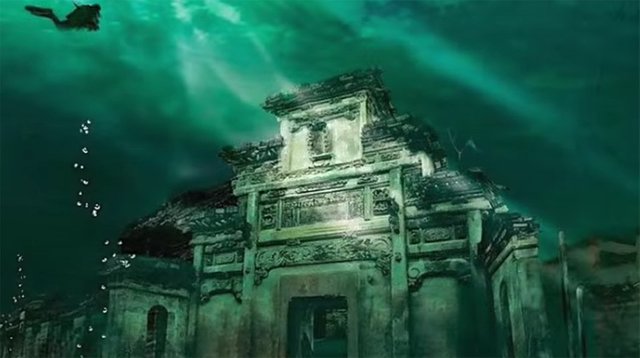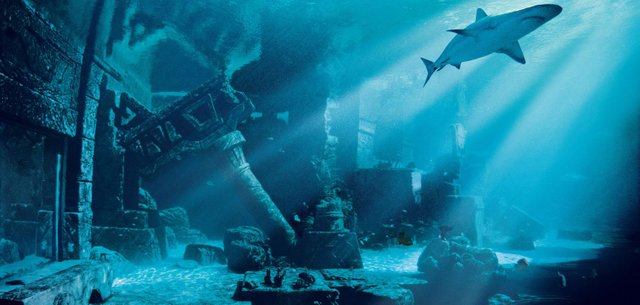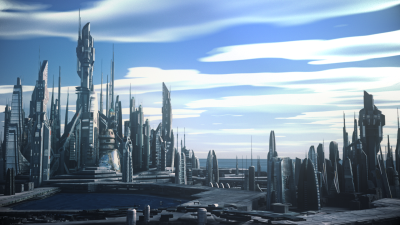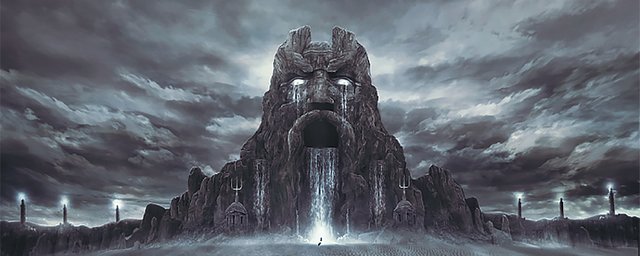Atlantis

Childhood memories:
Ever since I can remember I’ve been fascinated about the story of Atlantis. As a child I got my share of Atlantis from comic books, television, and video games. It was for the most part romanticised science fiction. Tales of a technologically advanced race that lived on an island, got really full of itself, and got punished by some deity or catastrophe or maybe caused its own undoing. Sometimes a mysterious search for, sometimes a confrontation with the survivors on the bottom of the ocean. As I grew up the story never quite left my mind. So where does it all come from, lets find out…

The origin:
The story of Atlantis first appears in the works ‘Timaeus’ and ‘Critias’ of Greek philosopher Plato (427-347 v.C). In a dialogues the main character Critias declares he heard the story of his great grandfather who in turn heard it from the great solon (638–558 v.Chr.). How the land of Atlantis looked like is described in great detail. On the island was among other things, a temple for Poseidon and the island itself was located outside the pillars of Heracles (Strait of Gibraltar).
In his 'Timaeus' and especially his Critias, plato tells extensively of an island bigger than Ancient Libya and Asia Minor together. There the people lived in prosperity and the castle walls were constructed of red, white, and black rock, quarried from the moats, and were covered with brass, tin, and the precious metal orichalcum.
At a visit in egypt solon met with two egyptian priests, Sonchis of Sais and Psenopis of Heliopolis. They told him of the Greek victory of a great army that advanced from a point in the atlantic ocean and conquered the whole of Ancient libya.

Other mentions:
Outside of Plato’s there is absolutely no written mention of Atlantis whatsoever. Either the documentation is lost, or it is deliberately hidden or destroyed to alter history or obfuscate ancient knowledge[4] about science, medication or maybe even the origin of humanity, but why and by who?
There is of course the case of Edward Cayce, who was a medium and got a lot of visions about Atlantis. One of his biggest revelations was that lots of documentation was kept at the library of Alexandria, and when it was destroyed some of the work was moved to secret locations around the world. One of these locations is the hall of records underneath the sphinx, where archeologist discovered cavities using ground penetrating sonar.
Possible locations:
Lots of island and civilizations were destroyed by flood or volcanic activity. Think of the Minoën society that got wiped out by an volcano eruption at Santorini. That way, archeologist Spyridon Marinatos discovered the Minoën harbor Akrotiri in 1967 under a layer of volcanic ash.
These events don't count as part of the Atlantismythe since Atlantis lay outside the pillars of Heracles, unless Plato meant something else.
Lots of voices say Antarctica might be a good candidate. Among other things, Plato wrote that the city of Atlantis was surrounded by mountains and was located on an elevated plain close to the ocean half way down the longest side of the continent of Atlantis. The continent of Atlantis, in turn, was surrounded by all of the world’s oceans and was roughly equal in area to the combined areas of North Africa and the Near East. Based upon this information, it is possible that the continent that we call Antarctica was the same continent that Plato called Atlantis. However, Antarctica is covered in ice since early pleistocene so that doesn't add up unless Antarctica somehow moved.
In 2017 National Geographic in cooperation with James Cameron investigated a location just outside the entrance of the mediterranean. With the use of archeology, sonar, and satellite images they found evidence of a lost ancient civilization. There is a site that keeps up with the work and a documentary film “Atlantis rising”

The critics:
Critics say the Timaeus is a theoretical essay of the philosopher Plato in which he represents his nature philosophy. The dialogue is a speculative description of Plato's cosmogony in the shape of a myth. But one could ask why would he invent a story to such a degree of detail. Following this line of thinking one could remember the discovery of Troye.
The alternative research:
Graham Hancock is a great proponent of the mother culture where all of civilization emerged. He sees evidence of this together with others that in different parts of the world early society’s build pyramids. Also the fact that these structures were built with great precision and were build in the exact north or following the patterns of celestial shapes make it an interesting theory.
In recent years there’s been a new interest in a pole magnetic shift or a tectonic shift to place Atlantis in places such as Antarctica or Greenland.
In conclusion
This is a difficult one for me, it's been a lifelong dream that somebody some day would find the Hall Of Records and with it, evidence of Atlantis or the mother culture. The truth is Plato is the only one who speaks of Atlantis, although it is the Greek name for the island and other cultures may have given it a different name, so maybe we already found it. The list of flood myths[5] from around the world is enormous so probably something did happen. I think the most likely thing that happened is that at the end of the last ice age early humans started to evolve, making use of tools and animals and whatnot. Since the climate was changing and sea levels were rising dramatically even in the course of a lifetime, people started to tell stories of how they used to live where the water is now. Stories became tales, and tales became legends. Legends of a memory of a long forgotten event.
https://aliens-and-conspiracies.com/2018/08/25/atlantis-memories-of-an-ancient-past/